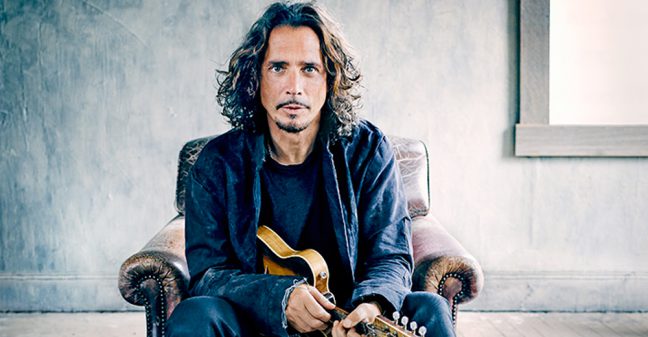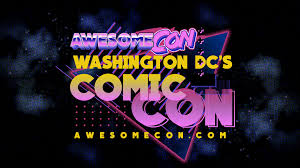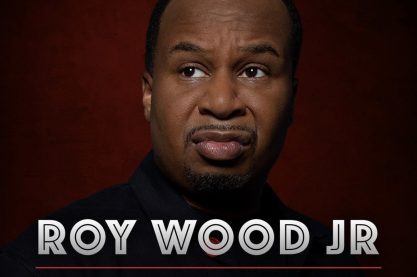Culture
Black Holes and Dark Days: Reflections On Chris Cornell and Depression

Grunge pioneer and multiplatinum recording artist Chris Cornell was found dead at age 52 this past Wednesday night after a performance in Detroit. Self inflicted, it was ruled a suicide that shocked even his own wife who said, “there were no signs he was at all depressed.” The loss is a punch in the chest to those of us audiophiles still reeling from the onslaught that was 2016’s seemingly endless barrage of deaths.
Cornell was a founding member and front man of 90’s Grunge band Soundgarden. At the beginning of the millennium he reemerged in the super group Audioslave, adding millions more in sales to his achievements and boosting his notoriety as one of the greatest Rock vocalists to ever do it. Although he claimed to not be inspired by the great bands of the 70s whom Soundgarden were compared to, Zepplin & Sabbath most notably, his voice was heavily in line with giants such as Robert Plant and the like. With the soul of a Chicago Bluesman and the edge of Ozzy Osbourne, he had a voice that touched you like the caress of a cats tongue: a marriage of both affection and gritty discomfort. It was unparalleled and distinct, nuanced and honest.
It's getting hard not to believe unbridled talent does not come with an array of prerequisite addiction, demons and/or mental illness. Strands of the same DNA helix intertwined and inseparable. The gift and the curse.
What if I’m looking at it wrong? Maybe for Chris Cornell, a multi-platinum grunge star from Seattle in the heroin heavy 90s, surviving 2 decades after the collapse of the genre he helped create is a miracle. A triumph to have simply made it to his 50s as many of his contemporaries died before their 30s. But to think this would be to slight his own feelings; to assume Seattle’s scene was more blighted by heroin than any other part of the country is a non-issue. “A neat story” as he called it in a 1994 Rolling Stone interview, “There are so many drug problems in so many places that have nothing to do with entertainment that the focus on literally less than a handful of individuals in this city or any other or in entertainment is absurd.”
Cornell had his own publicized bouts with alcohol and drugs (abuse went back to age 13 for him) but after 14+ years of sobriety, the theories and discussions have turned to mental wellness. This topic has as many deniers as global warming. If the loss of national treasure and the universally loved Robin Williams to depression and suicide couldn’t jump start the nations car on the road to accepting the very real epidemic of untreated mental illness then what hope does a Rock star have of getting it across? Well, maybe beginning the discussion with skepticism isn’t the right move. Either way, I’ll throw my two cents in with hopes of perpetuating the discussion. As someone whose family has faced this dead on, it is for me an issue that makes Cornell’s passing more personal. One that has also forever changed the way in which I register the soul in his is voice (one listen to the hook on Audioslave’s “Shadow Of The Sun” and I’m heartbroken). So many thoughts to weigh, and this isn’t even supposed to be an expose on America’s health crisis, it’s a eulogy for an important figure in the progression of Rock music over the past 3 decades.
Before we talk about Cornell the man we have to first give him context. His legacy, albeit not as blatantly obvious as Kurt Cobain and Eddie Vedder's, is possibly more important:
Hard Rock in 1987 saw the debut of Guns N’ Roses and was mostly dominated by Motley Cru style Hair Metal bands. At the same time, a few groups, including Soundgarden and The Melvins, were pioneering a new sound in Seattle that would become Grunge. At the time, metal was sunset strip cocaine on a stripper's tits, but Grunge felt more like gloomy blue-collar heroin. We all know which one became the standard in the following decade.
Seminal indie label, Sub Pop, most famous for launching Nirvana, owe much to Cornell and crew. In 1987 the band introduced Seattle radio DJ Jonathan Poneman to their friend, Sub Pop founder Bruce Pavitt. Poneman invested capital into the DIY label with the specific intent of producing Soundgarden's first EP. The money and new partnership of Pavitt and Poneman were the catalyst for everything that came after.
In 1988 the band signed to A&M records making them the first of the new Seattle bands to sign to a major label.
Cornell put together Pearl Jam. Well.. not totally.. but, kinda sorta. In 1989, another band to sign to a major was Mother Love Bone whose singer and guitarist were both Cornell's roommates. The singer, Andrew Wood, died of a heroin overdose just before their debut album was released. That’s when Cornell helped set history in motion. The guitarist/roommate was Stone Gossard whom Chris suggested they both should work through their grief, along with Mother Love Bone bassist Jeff Ament, by recording a single. Mike McCreedy came in as lead guitar, Cornell added his drummer Matt Cameron and vocalist Eddie Vedder happened to be in town to audition for Gossard. This project became Temple Of The Dog, famous for their single "Hunger Strike". Cornell aside, this line up would become Pearl Jam before Dave Krusen came in as the permanent drummer (Cameron later rejoined Pearl Jam in 1998 when Soundgarden broke up).
The sound of Seattle didn't breakthrough until Nirvana's Nevermind in 1991 but it's hard to ignore how formidable these contributions were to building the foundation. These tethers are embedded in the sweater that is Grunge (fittingly it would be a dingy brown and grey sweater), and if you pull the thread that is Chris Cornell the entire fabric falls apart. Lucky for him, he eventually earned his own spot in the sun avoiding the almost certain obscurity that tends to befall artistic trailblazers. (Cobain even admitted it was Soundgarden that inspired Nirvana to want to record on Sub Pop.)
In 1994, on the heels of the album Badmotorfinger and single “Rusty Cage”, Soundgarden released their biggest album ever, Superunknown. It debuted at #1 on Billboard's album chart, sold 5 million copies and won 2 Grammy awards. They were first in line but became the last of their scene to claim their rewards. The album's bright shining success bleached out the dark tones set by Cornell's lyrics. The problem with songs becoming fan anthems is that the meanings ultimately change to match the personal interpretations of the millions who've claimed the songs for themselves. Where Layne Stanley of Alice In Chains was blatantly writing about drug abuse and sadness, Cornell was more cryptic. The songs may be poetically ambiguous, but it's all there: the deep dark pit of depression, the grip of addiction and thoughts of suicide. In regard to writing about such subjects, he told Rolling Stone “In Kurt [Cobain’s] case, whatever he was thinking and whatever he was writing, there wasn't an arrow pointing at what his demise was. It's a stream of thought, it's a possibility — it's definitely something that somebody was feeling when they were writing. It doesn't mean that it's going to happen. But it doesn't necessarily mean that it isn't, either." For Kurt and Layne it happened sooner than later. It may have taken another 23 years but it eventually caught up to Chris.
In a 1999 interview with Guitar.com when asked about depression his response was, "no one really knows what run-of-the-mill depression is. You’ll think somebody has run-of-the-mill depression, and then the next thing you know, they’re hanging from a rope.” These somewhat self-fulfilling words are the kind that can haunt you if read into them too much. Further discussion revealed a more level and optimistic view of dealing with the affliction, “It doesn’t seem to come from anywhere. And whenever I’ve been in any kind of depression, I’ve over the years tried to not only imagine what it feels like to not be there, but try to remind myself that I could just wake up the next day and it could be gone because that happens, and not to worry about it. And at the same time, when I’m feeling great, I remember the depression and think about the differences in what I’m feeling and why I would feel that way, and not be reactionary one way or the other. You just have to realize that these are patterns of life and you just go through them.”
Mental illness is strongly connected to drug abuse statistics, in tern; drug abuse exacerbates depression and hopelessness. The National Bureau of Economic Research calculates that people diagnosed with mental illness are responsible for 69 percent of alcohol and 84 percent of cocaine consumption. The Substance Abuse and Mental Health Services Administration (SAMHSA) reported that in 2015 1.5 million American adults suffering a serious mental illness abused opioids. Hard drugs like heroin and cocaine work to flood the brain with dopamine, fooling your neurotransmitters into making you feel you are happy. Excessive use damages this brain system and makes it harder to naturally produce dopamine, in the end creating roadblocks to actual happiness. For a sober former addict whose natural pleasure centers are damaged, this can translate into an inability to contend with depression without the use of prescription drugs and other foreign elements. Bare with me, I’m just thinking out loud since we still don’t know what happened in that Detroit hotel room on Wednesday and the emotions leading up to it. All I know is that these statistics are important to digest during a time when the U.S. is facing an opioid epidemic, and simultaneously, suicide is at a 30-year high.
If the bright lights of performing and ambient glow of fan adulation were not enough to pull a star out of a deep shadowy hole then what salvation can us simple folks find? For me, I have a catalogue of Cornell’s songs that better express feelings I can’t always convey in my own words. If listening and singing along make a difference then let that be our vice of choice when falling on dark days. This week’s events coupled with some reflection on his words can offer a cautionary tale that may as well be exploited for the greater good. We must remember that those around us may not show any signs of depression but that does not mean they don’t need our help, love and support. He said it best in his single, “The Promise”, which was released only two months ago…
And one promise you made
One promise that always remains
No matter the price
A promise to survive
Persevere and thrive
As we've always done
If you need help and are feeling suicidal please call the National Suicide Prevention Lifeline at 1-800-273-8255
Dominic Painter is a writer and DJ based in Los Angeles, CA (IG @djdpainter Twitter @dj_dpainter)




